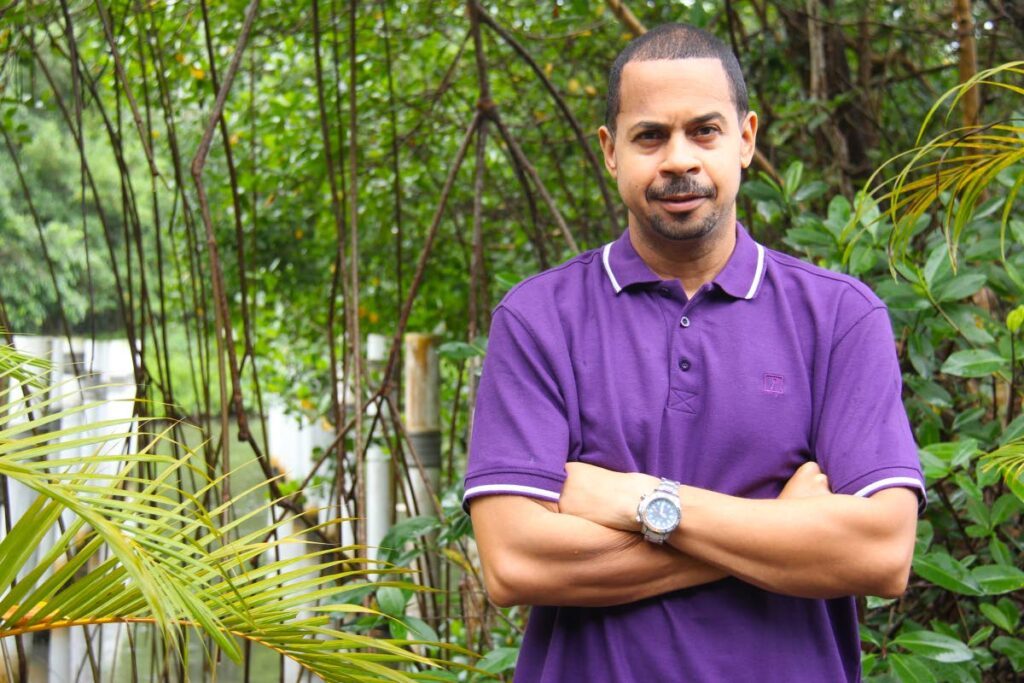Guyana's badjohn president

Paolo Kernahan
PRESIDENT of Guyana Irfaan Ali recently opened up a can of whoop-a-s; it was one of those family-sized cans you get at PriceSmart so everyone gets a share.
The occasion was a 5.30 am meeting (nothing good ever happens at that hour) to haul contractors, permanent secretaries, ministers, engineers and anyone within a 20-mile radius over hot coals for infrastructural project delays and shambolic oversight.
The verbal flaying was live-streamed, so a massive audience saw the president folding his belt for grown people, many of whom looked like schoolchildren buckling in fear, unable to answer the teacher’s questions.
The internet swung from titters to guffaws at this public dressing-down. There were, however, some folks who felt this style of badjohn management was an example of abysmal, outdated political leadership.
Ironically (and hilariously), much of that commentary came from PNM acolytes! These are the same folks who champion the hollow, invariably crass, inerudite and bellicose utterances and posturing from their dear leader Keith Rowley; they are right there in spirit – thumping desks in Parliament along with the PM’s phalanx of incompetents when he channels his inner Rottweiler.
Was Irfaan Ali’s intemperate, aggressive style a throwback to the Neanderthal management handbook? Of course! But it’s easy to understand where it comes from.
When I visited Guyana for the first time in 2018, there was an unmistakable aesthetic of a land locked in time. Some horse-drawn wooden carts were clip-clopping down the narrow, borderless roads. The creaking electricity grid is notoriously unreliable. Guyana is known as the land of many waters for good reason; rivers, canals and streams are abundant – running like a nervous system throughout the entire country. Flooding is a perennial scourge.
In many ways, our neighbours to the south have been held back for decades by economic necrosis and toxic political instability.
The Guyanese people cannot wait. They’ve already waited too long. With money flowing from extraordinary oil finds, people need to start seeing that change immediately. Citizens of that South American nation who have lived with infrastructural decay for as long as they can remember want meaningful improvements to their quality of life.
Ali’s remonstrations to ministers and contractors alike for project lethargy and sins of omission reflected this nervous urgency. To those who rubbish his methods as outdated and from another time, perhaps he knows his people better than we do and understands that they too are from another time – rendered so by decades of developmental malnourishment.
Ali seems keen on changing a culture that isn’t unique to Guyana. It’s an affliction of many countries in this region, cheerfully repackaged as a “laid-back” attitude to life. That kind of culture change is tough. It’s like trying to blow out the sun like a candle on a cake.
Ali was chiding contractors and officials in his ministries for projects that were four months behind. Meanwhile, in TT it’s customary to have projects going over by years, not months, with staggering cost overruns. It’s why, with the opening of every school term, any number of schools can’t resume classes because contractors are lagging on repairs or have botched them spectacularly.
Some time ago, I observed over seven long months regional corporation workers “repairing” a drain in a neighbourhood. There was usually a pall of ganja smoke as project supervisors stood next to a station wagon open at the back with a giant jug of Cara Mia, wine with cups and cutters aplenty.
At the project’s merciful end, the workers had converted a drain that flowed freely to one of permanent standing water and filth – a testament to the wilful incompetence and waste that define this country.
Such accounts are endemic in our society. One of my favourite stories is an old chestnut from 2012. Chairman of the Siparia Regional Corporation Leo Doodnath opened the door to an unused room in the works department and happened upon an all-fours tournament involving a bunch of workers and two section heads. Guess that room wasn’t unused after all.
We are a cautionary tale for Guyana. At the end of the grilling, Irfaan Ali said he called the meeting because he wanted his ministers, contractors and all the Guyanese people to succeed. The culture Ali is contending with has been cemented in Trinidad and Tobago by decades of free-flowing money with no accountability and widespread corruption. Perhaps if we had a badjohn like him instead of Eric Williams our story would be different.

Comments
"Guyana’s badjohn president"